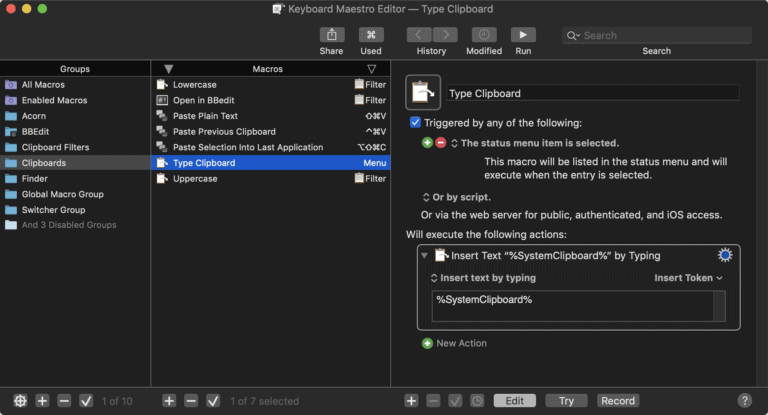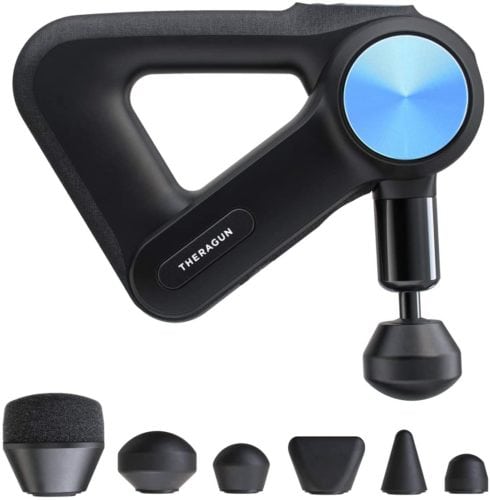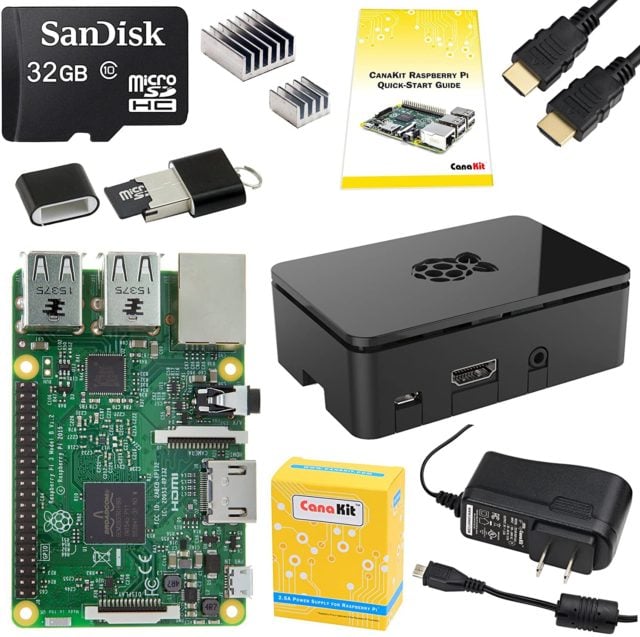
We are often asked by our Dojo members (the Dojo is our online productivity community) what tools we use. This would range from phone apps, books, electronic devices, to home appliances (not a joke). Our recommendations are based on how it helps us be more productive. Take, for example, a programmable coffee maker becomes a tool for productivity when you use it together with your morning ritual. You wake up, do your business in the bathroom and your coffee is already brewing. By the time you are done, your coffee is already waiting for you.
In this blog post, we are going to go over our top 10 purchases from last year that helped us in our productivity. It might not look like it at first glance, but all these tools serve a purpose in our quest to always keep improving.
(We understand that due to the current pandemic situation, a lot of us put our spending on hold. We are sharing these hoping that you might find it useful–if not now, in the near future.)
1. Kettlebell and Mace Bar ($100)
Just because most of us can’t go out to work out, doesn’t mean that we stop working out altogether. If you are used to moving your body and you stop, you will feel sluggish and will end up being unproductive. Plus you will not feel good about yourself. On the other hand, if you haven’t been exercising, perhaps you should start today with basic stretching exercises which can give you more energy to get things done.
We all know what a kettlebell looks like, but what is a macebar? Thanh’s trainer suggested that he purchase the macebar since it can be used for a full-body workout. Just like the kettlebell, it comes in different weights.
You do not need all the equipment in your gym to keep up with your workout habits at home. You don’t have to buy all the heavy equipment as well. If you’re worried about space, the kettlebell and the macebar can both fit in a small closet. You don’t need an entire room to store it.
2. Surface Pro 7 ($799 and up)
Yes, it’s Windows OS and no, we didn’t switch. What we did do consciously the past few years was to incorporate Windows (and Android) to our materials be it in the blog, courses, podcasts, webinars, newsletters, etc. We understand that not everyone uses the Apple ecosystem whether by choice or due to work. Once we got feedback that we need to add Windows, we listened and now, we always look for a Windows (or Android) counterpart.
Brooks is our Windows go-to person and after buying cheap (Windows) laptops and getting frustrated by it, he decided to invest in the Surface Pro 7 and had zero regrets. This is what he uses when he needs to create materials for our Windows clients.
3. Airpods Pro ($249)
Were you one of those people who laughed when the first Airpods came out a few years ago because it looked funny? Well, I did. Boy was I wrong. The pro version is even so much better–not just design-wise but also because of its noise-canceling feature. The majority of the Asian Efficiency team uses this especially since we do have our daily meeting and also our meeting days. We also record a lot for our podcast, course materials, webinars, etc.
Going hands-free is the way to go when you attend virtual meetings because it gives you the freedom to walk around. Sure there are a lot of cheap options out there (and I have tried some of those) but the fit is often off, is painful to the ears, and doesn’t last long. The Airpods Pro is sweat and water-resistant too. Thanh had an incident before that his Airpods fell in a cold tub but lo and behold! It worked fine the next day.
4. Get Together a book by People & Company ($17)
Get Together is an awesome book that discusses how to build a community that’s not focused on metrics. The book focuses on what makes a real community by showing you strategies that you can use to effectively build your community from the ground up.
You can use the learnings from this book for your own group at work or if you have a group outside of work (non-profit, sports groups, etc).
5. Daylio app
If you’re like Thanh and you want to optimize your life so that you can function at your peak, then Daylio is an app for you. It tracks your mood and gives you an idea of what makes your mood sour and what activities would improve your mood. For me, I noticed that my mood improves after a good workout and also when my family and I would go out for a picnic or even just watch a feel-good movie (before Covid).
Daylio is available for both Android and iOS.
6. SSD Drive
Although I use cloud storage, it’s always a good great idea to have a physical storage to save all your important files. You know what’s an even greater idea? Have two. You might be tempted to just use a partitioned space inside your hard drive but if it gets corrupted, it’s more expensive (and sometimes no longer possible) to salvage your files rather than just buy an external HDD. Brooks personally recommends the following:
- Samsung T5 1TB ($179)
- WD Blue 3D + UGREEN Enclosure
7. Oura ring ($300)
The only reason why I don’t have this yet is because they don’t ship to the Philippines. I just needed to get that out of my chest.
But why the Oura ring? When your CEO talks about a tool that he uses A LOT and has contributed to his well-being, you will also get curious. I got curious and did my own research. I already have an Apple Watch that I use to track my sleep and also my workout, but according to my research, the Oura ring’s stats are more accurate. It gets cumbersome to wear the Apple Watch at night and I often find myself taking it off a few nights a week making my data gathering incomplete.
If you’ve been on the fence on what to get to track your activities, go for the Oura ring (unless you want the other bells and whistles like notifications, answering calls/messages).
8. Keyboard Maestro Field Guide by MacSparky ($29)
If it can be automated, we will automate it. That’s not our real slogan but it’s correct. That is why we love Keyboard Maestro because it allows us to automate repetitive tasks by using triggers. We talk about it in detail here.
The Keyboard Maestro Field Guide is the perfect partner to the KM app. Before purchasing the field guide, Brooks though he was already an expert in using Keyboard Maestro. Let’s just say he learned that he was still a beginner.
If you are big in automation and you want to save time, get Keyboard Maestro together with the Field Guide from MacSparky.
(Did you know we also have a course all about automation? It’s called Automation Academy. We also discuss KM in the course.)
9. Theragun Pro ($600)
Last year, I went to a physical therapist when I was feeling a numbing pain on my left leg (after a 10km run). I couldn’t run for more than 10 minutes because I was in agony. He used a stainless steel blade called a Gua Sha to release my leg muscles and then used a ‘muscle gun’ (as I used to call it). It. Was. Painful. But in a good way. It released the tension on my leg and I was able to run again!
If you workout regularly, the Theragun Pro can help warm up your muscles and remove stiffness. It’s never a good idea to workout without warming up. The process of warming up before any form of exercise makes sure that you have enough oxygen in your muscles. You only need 30 seconds per muscle group to improve your performance and recover faster after each workout or training.
I own a different brand (ExoGun) just because Theragun is not available in my country. Thanh personally uses Theragun Pro.
10. Raspberry Pi ($35)
Before you go “what in the world?!” know that I also said the same thing. Upon closer inspection, it’s a pretty awesome hobby kit that will exercise your brain!
You can use it to learn how to code, build a retro gaming console, control a robot, and etc. Now, you might think “how is this productive?”. The thing is, productivity is not all about ticking off a task from your todo list. Being productive also means taking breaks. I would have to say this is a better use of my time rather than scrolling through Facebook mindlessly.
I am excited to get my own Raspberry Pi kit to share with my daughter. She’s going to be homeschool due to the pandemic and this is one activity we can both share when she needs to take a break from her worksheets.
What about you? What did you purchase last year that helped you be more productive or have increased your happiness?










